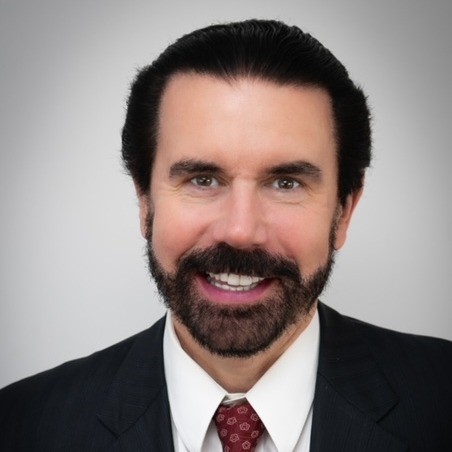Rooted Interests with
Frank Tortorella, JD, MBA, FACHE
Frank Tortorella, JD, MBA, FACHE
A Cuppa Coffee with Frank Tortorella, JD, MBA, FACHE
The impact of culture on clinical operations and patient experience
Onward Academic Partners met with Frank Tortorella, JD, MBA and FACHE, to learn more about his leadership roles in healthcare. He’s served in a variety of roles related to strategy, finance and operations at a variety of healthcare systems across the country. This conversation highlights his belief in the value of team culture and its impact on clinical operations and the overall patient experience.
Frank has a JD from Loyola University Chicago School of Law and an MBA from The University of Chicago Booth School of Business.

Frank Tortorella
What things stand out to you when you talk about an organization with a strong employee culture?
A strong employee culture is characterized by several key elements:
- Shared Understanding: Everyone in the organization agrees on the culture and can describe it in their own words. This shared understanding helps align the team towards common goals and aspirations.
- Lived Values: Employees not only understand the culture but also live it through their behaviors. Whether it’s inclusion, caring, or discovery, these values are demonstrated daily.
- Leadership Example: Top leaders embody the culture. They communicate it often and authentically, ensuring it permeates through all levels of the organization.
- Visible Impact: The culture is not just internal but is also felt by patients, customers, and other stakeholders. This external validation shows that the culture is truly alive and impactful.
These elements together create a cohesive and vibrant organizational culture that benefits everyone involved.
What actions have you seen have the most positive impact on an organization’s culture? Anything you’ve seen that didn’t work as you thought it would?
One of the most effective actions is for top leaders to clearly communicate the organization’s culture and authentically demonstrate it through their actions. This makes the culture evident to all employees and influences their behavior, ensuring new arrivals understand it as well. Positive results from these behaviors further strengthen the culture.
What doesn’t work is changing the culture to follow the latest trends. Consistency in culture is crucial.
How does culture influence patient care in clinical settings?
Culture has a profound impact on patient care. When a healthcare organization prioritizes a high-quality patient experience, this commitment is reflected in every aspect of their operations. Employees demonstrate this through compassionate and attentive care, facilities are designed to enhance comfort and accessibility, and policies are crafted to prioritize patient well-being. All these elements together showcase a culture that is deeply focused on the needs and experiences of patients.
Burnout among physicians and nurses has been an increasingly large issue for health systems leaders. To what extent do you believe this is impacting the patient experience at medical centers in general across the country? Have you found effective ways to measure this impact?
Burnout among physicians and nurses significantly impacts the patient experience at medical centers across the country. When caregivers are not finding joy in their work due to burnout or poor work-life balance, this dissatisfaction is often perceived by patients, leading to a negative experience. Burnout can be measured through employee engagement and patient experience surveys, which provide insights into the well-being of healthcare providers and the quality of care they deliver.
You’ve been a mentor to many administrators in your career. How do you instill in them the importance of designing systems, policies and procedures to drive the best possible patient experience?
To instill the importance of designing systems, policies, and procedures for the best possible patient experience, I share stories of the positive outcomes from well-designed systems and policies, as well as the negative consequences of poor ones. Additionally, I emphasize the importance of seeking feedback from both patients and caregivers when creating these systems and policies to achieve the best outcome. This approach helps mentees understand the real-world impact and value of their work.
What is your philosophy on patient experience?
My philosophy on patient experience is that it is crucial for achieving better healthcare outcomes. When patients have a positive experience throughout their journey, they are more likely to follow their provider’s advice, which leads to improved health. The culture within a healthcare organization is deeply connected to patient experience. If employees feel joyful and aligned with the culture, it positively reflects in the care they provide. Conversely, if they are unhappy or disconnected, it negatively impacts the patient experience. Therefore, fostering a positive and aligned culture is essential for delivering the best possible patient care.
Any last words of advice to administrators who want to move their team’s culture and improve the care and service they are providing patients in their community?
My advice to administrators is to focus on building and nurturing relationships with their team. By helping your team achieve their development goals, you not only support their growth but also enhance the overall care and service provided to patients. As a leader, it’s crucial to be an excellent listener—listen twice as much as you speak. This approach fosters a positive culture and ensures that both the team and patients benefit from a supportive and attentive environment.

Rooted Insights is an engaging interview series that brings you candid conversations with some of the most dynamic leaders in academic medical administration. Over the years, I’ve had the privilege of learning from and collaborating with these remarkable individuals, and now, we’re sharing their insights and experiences directly with you.
Each interview offers a concise yet impactful perspective on timely and relevant issues in their area of expertise across academic medicine. Whether seeking new ideas, professional inspiration, or development guidance, these conversations are designed to spark your curiosity.
If you’d like to dive deeper, please contact me directly and we can continue the conversation.
Sit back and enjoy this series!

